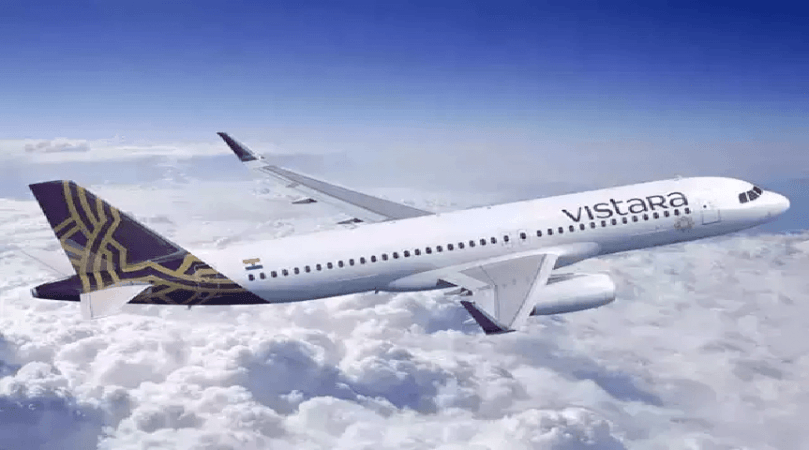
Resuming back to massive layoffs after a lull experienced in June, Emirates, the UAE's national carrier, has fired 800 pilots in a day on July 8, exactly one month after the last layoff was announced. While it is rather unclear why the airline paused its layoff exercise for close to a month, assuming the development because of some employees committing suicide.
Pilots lose jobs among all Middle East carriers
According to industry sources, 560 pilots who were laid-off were on the Emirates airline's A380 fleet, and 240 on the airline's B777 planes. In its first round of retrenchment, the airline had laid off 600 pilots in a day on June 9, which was recorded as among the largest exercises in the global aviation industry. The pilots and officers sacked then were on probation.
A senior executive with the knowledge of the matter said, many Indian pilots have also lost their jobs, even those with 12-15 years of industry experience have also been laid off. The airline has started cutting down its workforce from May 31, after it sacked 180 pilots. Also, 40 of Emirates' 115 A380 aircraft will be put out of service. There have been rumors doing rounds much earlier after Covid-19 outbreak and losses witnessed thereafter, that the airline plans to cut 30 percent of its workforce, which approximates to around 30,000 employees.
"Airlines in the Middle East continue to be battered by the impact of COVID-19. Passenger traffic has all but ground to a halt and revenue streams have evaporated. No amount of cost-cutting will save airlines from a liquidity crisis. The collapse of air transport will have devastating effects on countries' economies and jobs. And in a region where aviation is a key pillar of many nations' economies, the effect will be much worse. Direct financial support is essential to maintain jobs and ensure airlines can remain viable businesses," said Muhammad Al Bakri, IATA's Regional Vice President for Africa and the Middle East.
Coping with survival in Covid-19 times
Economies across Africa and the Middle East have been devastated by COVID-19, and the aviation industry has been especially hard-hit. "Across the region, more than 8.6 million jobs in the airline industry and those businesses supported by aviation are at risk. Thousands of jobs have already been lost due to the shutdown of air traffic," according to an IATA statement.
"Implementing a layered approach should give governments the confidence to open borders without quarantine, and passengers the confidence to fly. Air connectivity is critical to economic and sustainable development in and across AME," said Albakri.
As carriers are expected to make a loss of $4.8 billion this year because of the coronavirus outbreak that has destroyed demand for air travel, more job losses are expected in the Middle East in the weeks to come. IATA's first recovery forecast estimates that the global airline industry will lose more than $84 billion in 2020 as revenues drop by 50 percent to $419 billion.
"Financially, 2020 will go down as the worst year in the history of aviation. On average, every day of this year will add $230 million to industry losses. In total that's a loss of $84.3 billion. It means that—based on an estimate of 2.2 billion passengers this year—airlines will lose $37.54 per passenger. That's why government financial relief was and remains crucial as airlines burn through cash," said Alexandre de Juniac, IATA's Director General and CEO.

"Airlines will still be financially fragile in 2021. Passenger revenues will be more than one-third smaller than in 2019. And airlines are expected to lose about $5 for every passenger carried. The cut in losses will come from re-opened borders leading to increased volumes of travelers. Strong cargo operations and comparatively low fuel prices will also give the industry a boost. Competition among airlines will no doubt be even more intense. That will translate into strong incentives for travelers to take to the skies again. The challenge for 2022 will be turning reduced losses of 2021 into the profits that airlines will need to pay off their debts from this terrible crisis," de Juniac added.
Meanwhile, the Civil Aviation Minister of India, Hardeep Singh Puri tweeted, "Indian carriers operating repatriation flights and UAE carriers operating charter flights to bring Indian citizens from UAE to India can now carry ICA approved UAE residents from India to UAE. This arrangement will be in place for a period of 15 days from 12-26 July 2020. As a part of the close strategic partnership between India and UAE, the Civil Aviation Authorities of both countries have agreed to operationalize a special arrangement."
Indian carriers operating repatriation flights & UAE carriers operating charter flights to bring Indian citizens from UAE to India can now carry ICA approved UAE residents from India to UAE. This arrangement will be in place for a period of 15 days from 12-26 July, 2020.
— Hardeep Singh Puri (@HardeepSPuri) July 9, 2020
Job losses in the Indian aviation sector
Earlier in April immediately after the coronavirus outbreak, Air India temporarily suspended the contracts of around 200 pilots, who were re-employed after retirement. The national carrier also cut all allowances of employees except for the cabin crew, by 10 percent for the next three months until July 2020.
While Indian aviation carriers have managed to survive thus far without fiscal assistance, fresh rounds of pay cuts are implemented in July as the industry stares at an uncertain future. According to ET report, Indigo is slashing salaries of some pilots by over 45%, Vistara announces 5 to 20 percent pay cut for 40% of its staffers, AirAsia to cut pilot salaries by 40% in July, while GoAir's ongoing scheme of leaves without pay will continue for over 90% of its staffers.
Ashim Mittra, senior vice president for flight operations, said in an internal email to pilots that Indigo will implement another 5.5 days of additional leave without pay (LWP) for the month to 10 days of LWP for a full-time leave program. Also, salary will be revised for "under-training transition captains and transition first officers"

Vistara's CEO Leslie Thng will take a 20% monthly pay cut till December, the senior management will take a 15% pay cut, the middle-management will take a 10 percent cut till December. Those in the junior levels with a monthly salary of Rs 50,000 and above will take a 5 percent cut till December. About 60% of Vistara airline staff will be impacted by this move.
In another drastic measure to control costs and survive, the debt-ridden air carrier SpiceJet said that its pilots will not be paid any salary for April and May, only those pilots flying cargo flights will be paid on the accurate basis of hours flown only.
The DGCA has earlier extended the validity of pilot licenses that were up for renewal in the next 90 days as the lockdown had suspended training of the flight crew, plus the validity of medical certificates, skill tests, and aircraft rating certificates have also been extended by the Indian aviation regulator.

















